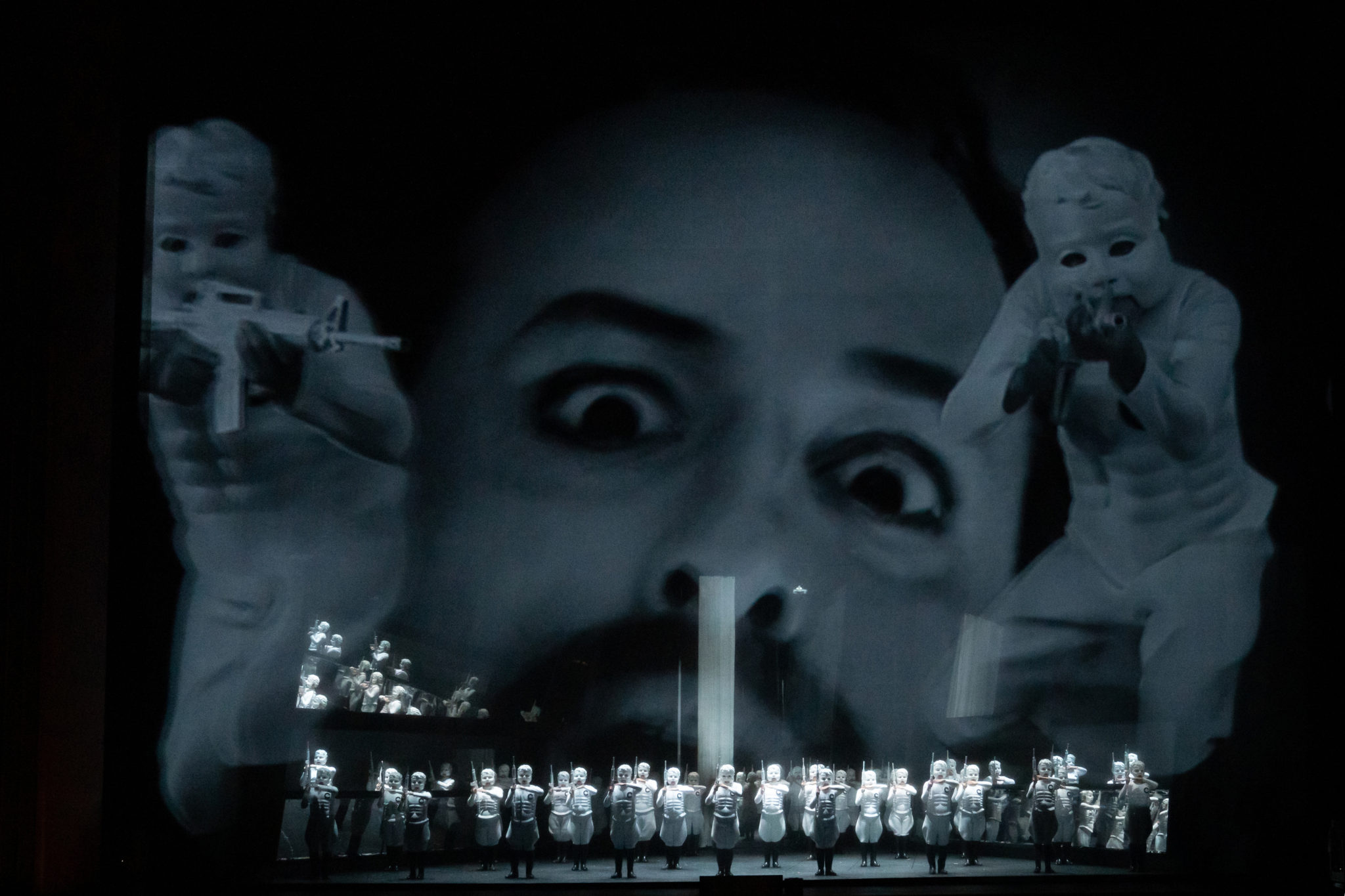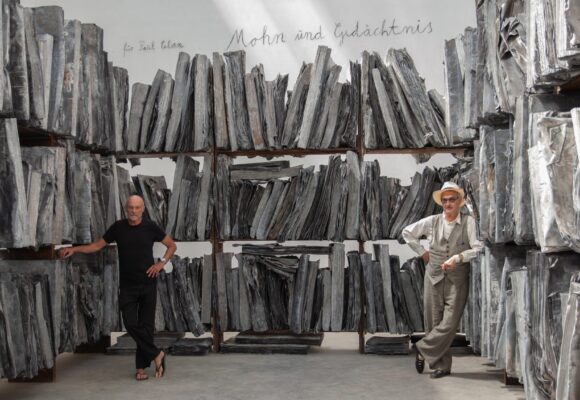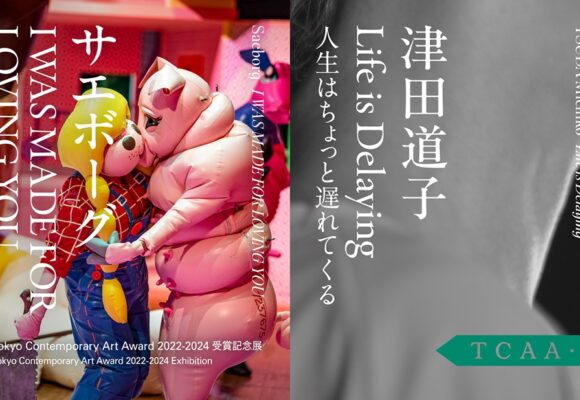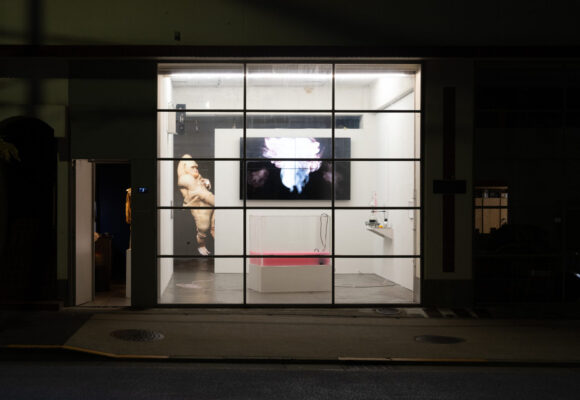Received a Master’s Degree (in theater studies and dance) from Waseda University, Graduate School of Letters, Arts and Sciences. Active as a writer mainly on topics related to contemporary theater, traditional performing arts, ballet, dance, musical and opera. She currently writes regularly for the online magazine Ontomo, focusing on theatre from an auditory perspective (“Mimi kara miru butai,” https://ontomo-mag.com/tag/mimi-kara-miru/), the ballet magazine Swan Magazine (“Bare fan ni okuru opera mangekyo”), and the ballet-focused online publication Ballet Channel (“Suteji kosaten,” https://balletchannel.jp/genre/ayako-takahashi). First prize winner at the 10th Japan Dance Critics’ Award.
©TERASHI Masahiko/ New National Theatre, Tokyo
The New National Theatre, Tokyo hosted the world premiere of composer Dai Fujikura’s original opera A Dream of Armageddon, directed by Lydia Steier and conducted by Kazushi Ono. The work is based on a 1901 short story of the same name by H.G. Wells. In the story, the narrator is riding on a train when he is approached by a stranger named Hedon, who begins describing a dream world in which he, a politician by the name of Cooper, was once the leader of a certain country. He gave up his position to lead a sweet life with the woman he loved, but by doing so allowed a dictator to rise to power, establish a totalitarian system, and develop weapons of mass destruction. Eventually, both he and his lover ended up dead. Often seen as having predicted the two world wars, Wells’s story was adapted for Fujikura by the poet and librettist Harry Ross, who wrote the libretto in English while working closely with the composer. During their process of creation, Ross and Fujikura made several intriguing changes to the original version.
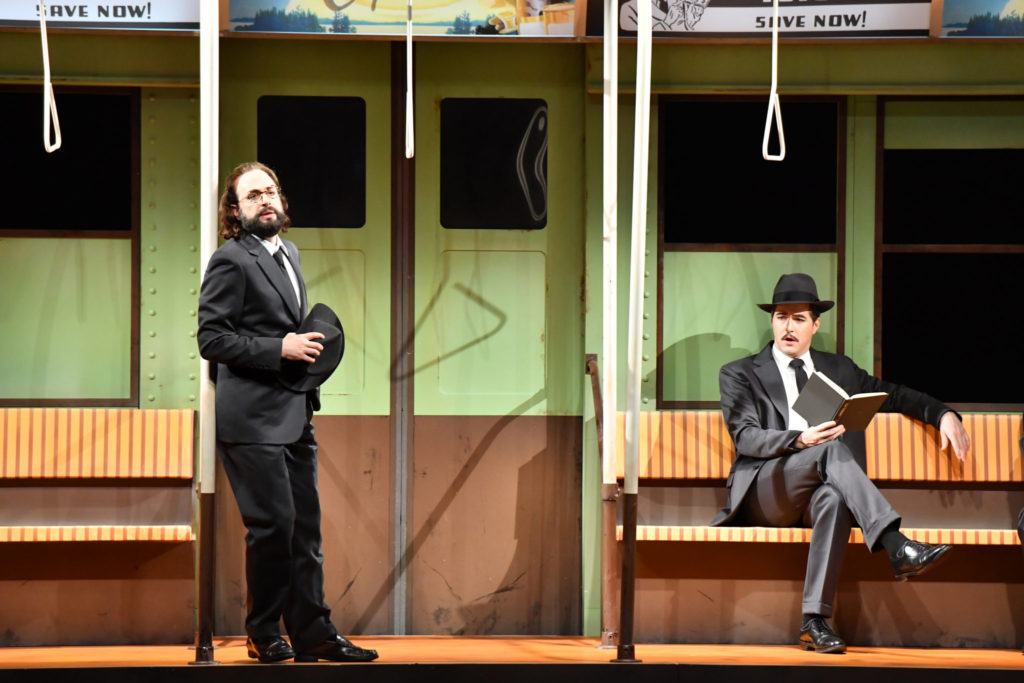
©TERASHI Masahiko/ New National Theatre, Tokyo
Some of those changes concerned the characters and setting. In Ross and Fujikura’s adaptation, the protagonist is named Cooper Hedon – an amalgam of the same character’s real-world and dream-world names in the original – while the original’s narrator, whom the story is told to on the train, is here named Fortnum Roscoe. That name comes from the author of Dream States, the book the original’s narrator is reading on the train when Hedon approaches him and says that reading it will “tell you nothing.” Fortnum is played by Seth Carico, the same singer who performs the role of the emerging dictator Johnson Evesham. In the opera, the invasion of reality by dreams that threaten the protagonist is proceeding in real time, while in the original this is recounted as something from the past. Another alteration concerns the protagonist’s love interest, who is left unnamed in the original but is here given the name Bella Loggia. Bella means beauty, while Loggia describes the place where, in the original, Cooper and his beloved lived happily before tragedy struck. The depiction of Cooper (Peter Tantsits) and Bella’s (Jessica Aszodi) intimacy is beautiful, both musically and dramatically, but equally enveloped in an atmosphere that captures its paucity of reality (though the need for social distancing may also have played a part in bringing this about). Around the middle of the story, Bella reveals that her parents were the ones who founded the Circle, the organization run by Evesham, and implores Cooper to rise up against them. Cooper, however, takes no action, thereby inviting his own destruction.
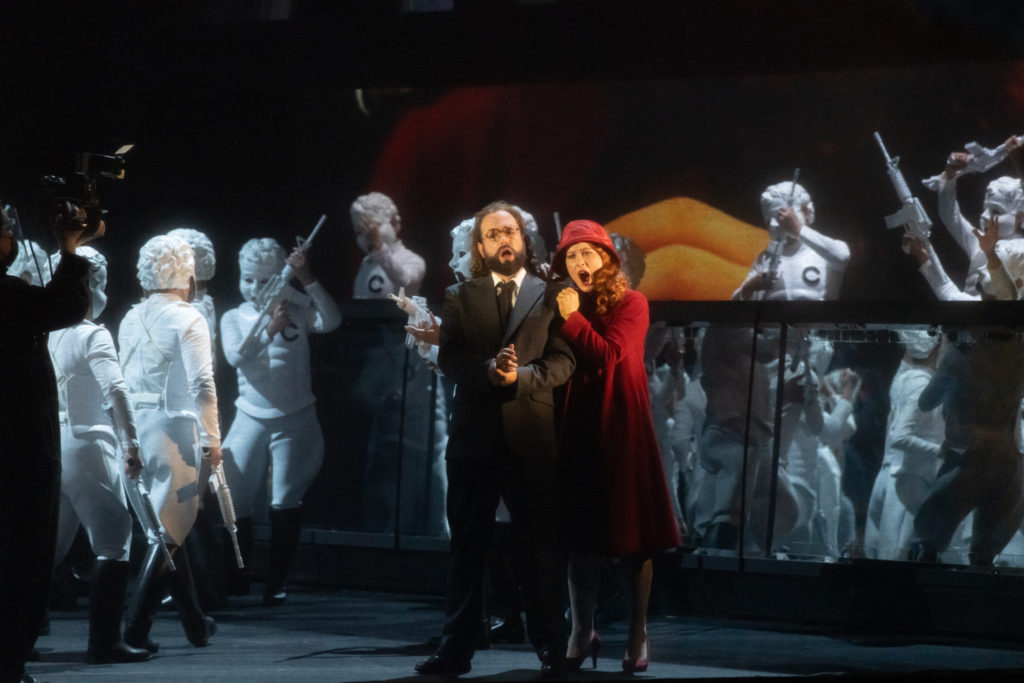
©TERASHI Masahiko/ New National Theatre, Tokyo
All this considered, the characters in Fujikura’s A Dream of Armageddon appear to be more than mere individuals. For Cooper, the pragmatic and active but somehow unrealistic Bella represents his own ideals, and is perhaps another version of himself; one that inspires his own weak self to do greater things. In that reading, it makes sense that Bella never leaves Cooper to take action on her own, and the story’s theme that threats come not from the outside but from one’s roots, i.e. from inside oneself, becomes more convincing. In the same sense, Fortnum, the ordinary tax lawyer, and Evesham, the dictator, appear quite different at first sight, but it is the desires and yearnings of ordinary citizens that give rise to dictatorship; the dictator is who the citizen sees in the mirror. The other characters – including Etsuko Kanoh’s “Inspector,” who helps Evesham to victory by stoking people’s fears; Tetsuya Mochizuki’s “Cynic/Singer,” the former refusing to take sides, the latter symbolizing the people who turn a blind eye to reality while indulging in pleasure; and the ignorant young soldier (played in turn by Yusuke Nagamine, Rintaro Harada, and Keito Sekine) who is caught up in politics – also bring to mind various events that have occurred again and again throughout history.
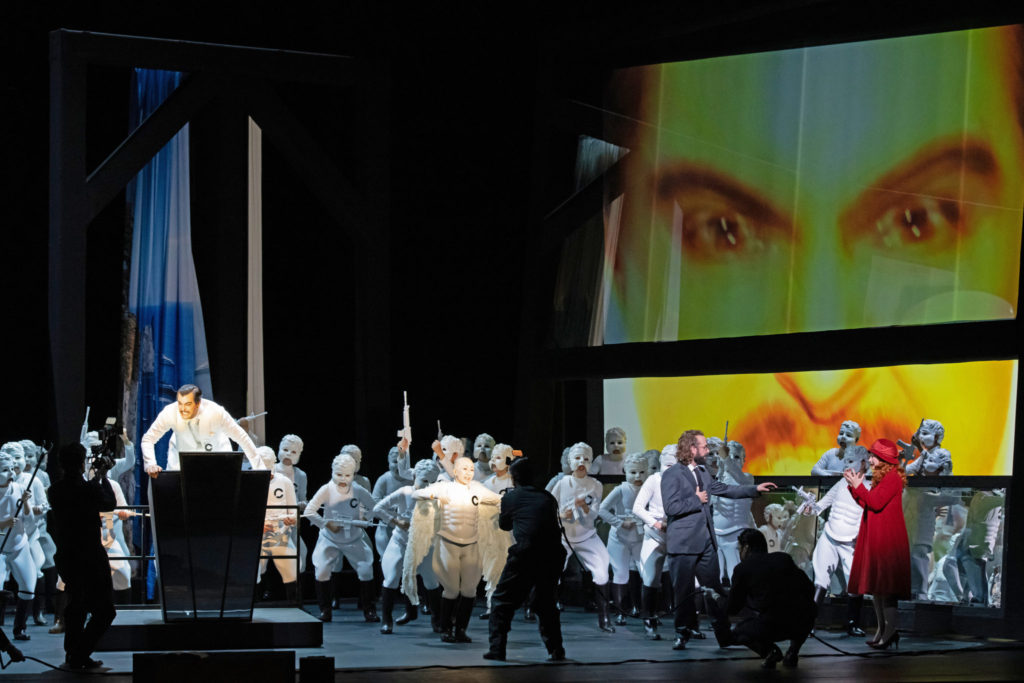
©TERASHI Masahiko/ New National Theatre, Tokyo
According to the official program, A Dream of Armageddon was created without fear of being seen as political. The libretto incorporates slogans such as “Take back control,” used repeatedly by the pro-Brexit side in the UK, the librettist’s home country. That such short and catchy soundbites lead people to stop thinking and get caught up in euphoria is nothing new, but the phenomenon is perhaps even more pronounced in today’s social media-dominated age. The 21st-century depiction of the rise of Evesham and his Circle is nothing but symbolic of our post-truth world. In the story, Bella uses peculiar phrases like “No shopping cart” and “Remember a hello” to sound the alarm against our information society, market fundamentalism, and the “discommunication” within them; a shopping cart loaded with guns even appears on stage at one point. The deaths of Cooper and Bella appear to be more than physical deaths: they seem to represent the suppression of voices and opinions in contemporary society. After they die, the scene returns to the train from the beginning, but now people are dying on this train too. This is no story about a dream from the past, it’s about what’s going on right here, right now.
Fujikura brings this world and its extremely contemporary themes to life with resplendent music – from the opening’s tense, highly disquieting a cappella chorus to a decadent party, Fortnum’s eerie speech, storm-like orchestral suites that warn of impending threats, and a heart-rending finale in which a young boy sings “Amen” on the train of death. All this is accomplished in practice through Ono’s conducting of the cast, the New National Theatre Chorus, and the Tokyo Philharmonic Orchestra. Steier’s direction is vivid and richly suggestive. While the entire world battles a pandemic and societies are becoming increasingly polarized, the New National Theatre has given birth to an unmistakably contemporary opera. This is a brilliant accomplishment that raises high hopes for the institution.
Translated by Ilmari Saarinen
INFORMATION
Dai Fujikura’s "A Dream of Armageddon"
Libretto by: Harry ROSS (after the short story “A Dream of Armageddon“ by H.G.WELLS)
Composed by: FUJIKURA Dai
Conductor: ONO Kazushi
Supported by British Council (UK in JAPAN affiliate programme)
Special thanks to Embassy of the Federal Republic of Germany in Japan and Goethe-Institut Tokyo


